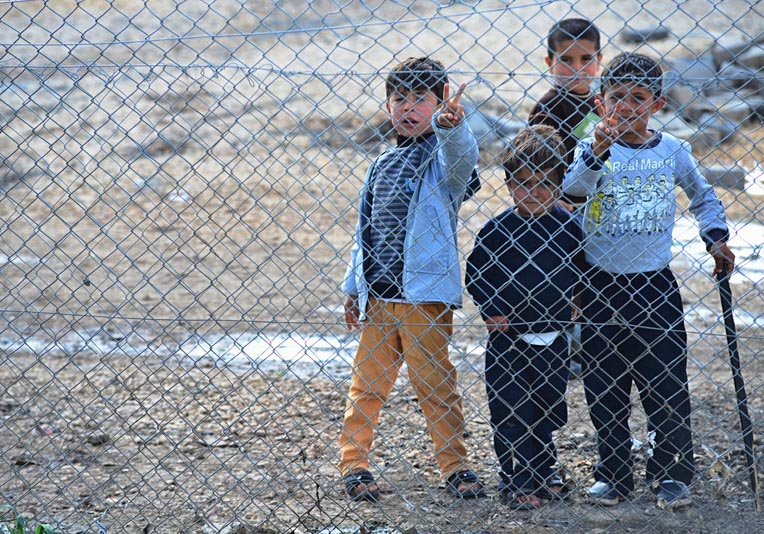An Opinion Editorial by Karolína Babická, Legal Adviser, ICJ Europe Programme.
At this very moment, some children in Spain are being held in adult immigration detention centres, pending return to their home countries.
Other migrant children are living on the streets in Madrid and other Spanish cities, suffering from serious illnesses, or are prevented from applying for asylum.
This is happening because they are not Spanish nationals and the authorities have not recognized them as children, but consider them to be adults.
During our capacity and coalition building activities with lawyers and civil society organizations to better defend migrant children’s rights in various European countries, our Spanish partner, Fundación Raíces, raised attention to the dire situation of migrant children in Spain.
In seven cases concerning migrant children in vulnerable circumstances, Fundación Raíces and other Spanish lawyers requested the United Nations Committee on the Rights of the Child to issue interim measures, i.e. orders to the Spanish authorities, with a view to avoiding irreversible harm to these children.
In States that, like Spain, are parties to the Optional Protocol to the Convention on the Rights of the Child on a Communications Procedure, the Committee on the Rights of the Child is empowered to examine individual communications by or on behalf of a child or group of children claiming that there has been a violation of their rights under the Convention.
Pending its determination on the merits, the Committee may request the State party to take interim measures as may be necessary to avoid possible irreversible damage to the victim or victims of the alleged violations.
In one of the seven cases mentioned above, A.D. is a 17-year-old child from Mali that arrived in Spain in March 2017. He was transferred to the immigration detention centre for adults in Madrid as he was considered adult by the public prosecutor, while ignoring the official and original documents A.D. has from his country of origin.
The UN Committee reacted swiftly to the lawyers’ demands and during the past 7 months requested the Spanish government in those seven cases to take interim measures.
Under international law, respect for interim measures is essential for the protection of human rights.
Existing international law and jurisprudence affirm that any State party’s non-compliance with a request for interim measures constitutes a breach of its legal obligations under international law.
The binding nature of interim measures has been reaffirmed by the Human Rights Committee in its General Comment 33 on the individual complaints procedure.
However, the Spanish government has ignored these requests and failed to comply with any of the requested interim measures.
The Spanish government is thus in violation of international obligation it has voluntarily undertaken; more significantly, the lives and well being of dozens of highly vulnerable children are at risk.
The UN Convention on the Rights of the Child obliges States to consider the best interests of the child as a primary consideration above any other.
However, the Spanish authorities claim that the individuals in these cases are not children but adults.
Yet, in the event of any remaining uncertainty, international law affirms that States must accord the individual the benefit of the doubt and treat him or her as a child, until effectively proven otherwise.
Moreover, the Spanish Supreme Court has already expressed concern about the age-assessment procedure used by the Spanish authorities, in more than 10 judgments, as did the Spanish Ombudsman and the United Nations High Commissioner for Human Rights.
Recently, six civil society organizations in Spain (Amnesty International, Fundación Raíces, the General Council of Spanish Lawyers, the Jesuit Mission for Migrants, Noves Vies and Save the Children) have called on the Spanish Government to immediately implement the Committee’s request for interim measures in each case.
The ICJ is training lawyers in seven EU countries, including Spain, and supporting them in bringing their cases to international human rights mechanisms, such as the UN Committee on the Rights of the Child, when no effective remedy is available domestically.
The Spanish government is failing these children and is failing to respect its international law obligations.
Respecting one’s international obligations and ensuring that no harm is caused to children in violation of their rights should be high priorities for any States that are parties to the UN Convention on the Rights of the Child.
The Spanish Government should live up to its obligations, and implement immediately the Committee on the Rights of the Child’s request for interim measures in these cases.
Photo credit: Plan International

